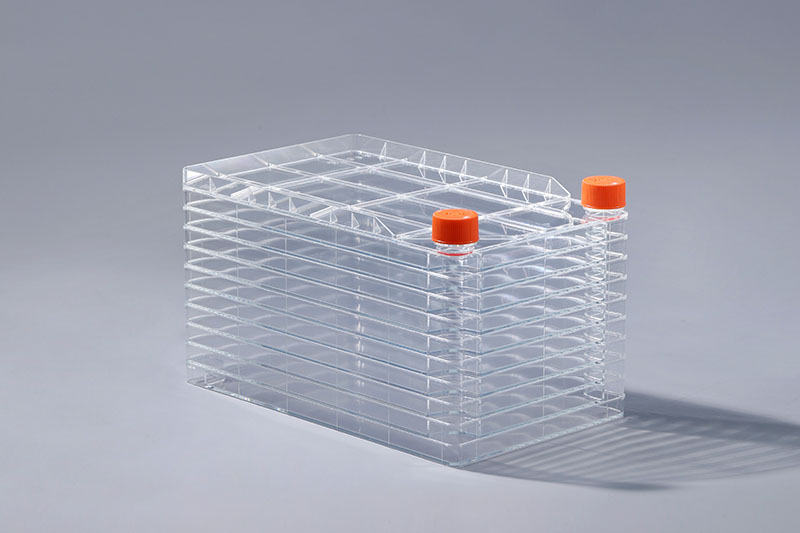Factors Affecting Cell Factory Culture Technology - Cell Seeding Density
Cell factory culture technology plays an important role in the fields of monoclonal antibody and vaccine preparation. When culturing cells, it will be affected by various factors, among which the cell inoculation density will also affect the cell culture process.
When using cell factories for large-scale cell culture, the number of cell inoculations has a direct impact on the growth of cells. An appropriate inoculation density can promote better cell proliferation. Too high or too low inoculation density is not conducive to cell growth and proliferation. How to choose the appropriate inoculation concentration should be determined according to the cell metabolism, growth and reproduction speed and the needs of the work.
Generally speaking, cells with strong metabolism and fast growth (such as tumor cells) should be inoculated at a lower concentration; while normal tissue cells grow slowly and their metabolism is not vigorous enough, the inoculation concentration may be higher; For emergency use, the inoculation can be lower; sometimes in order to facilitate the observation of cell morphology, the inoculation concentration can also be appropriately reduced. Ordinary cells can be seeded according to the number of cells per unit area of the cell factory, multiplied by the cell factory culture area used, and then divided by the seeding ratio of cultured cells. Too high or too low inoculation amount of cells is not conducive to cell reproduction. Appropriate cell inoculation amount is the premise to ensure the normal growth of cells.
The cell seeding density is an important factor affecting the cultured cells of the cell factory. Only by controlling the appropriate density can the cell culture experiment be carried out smoothly.

评论
发表评论